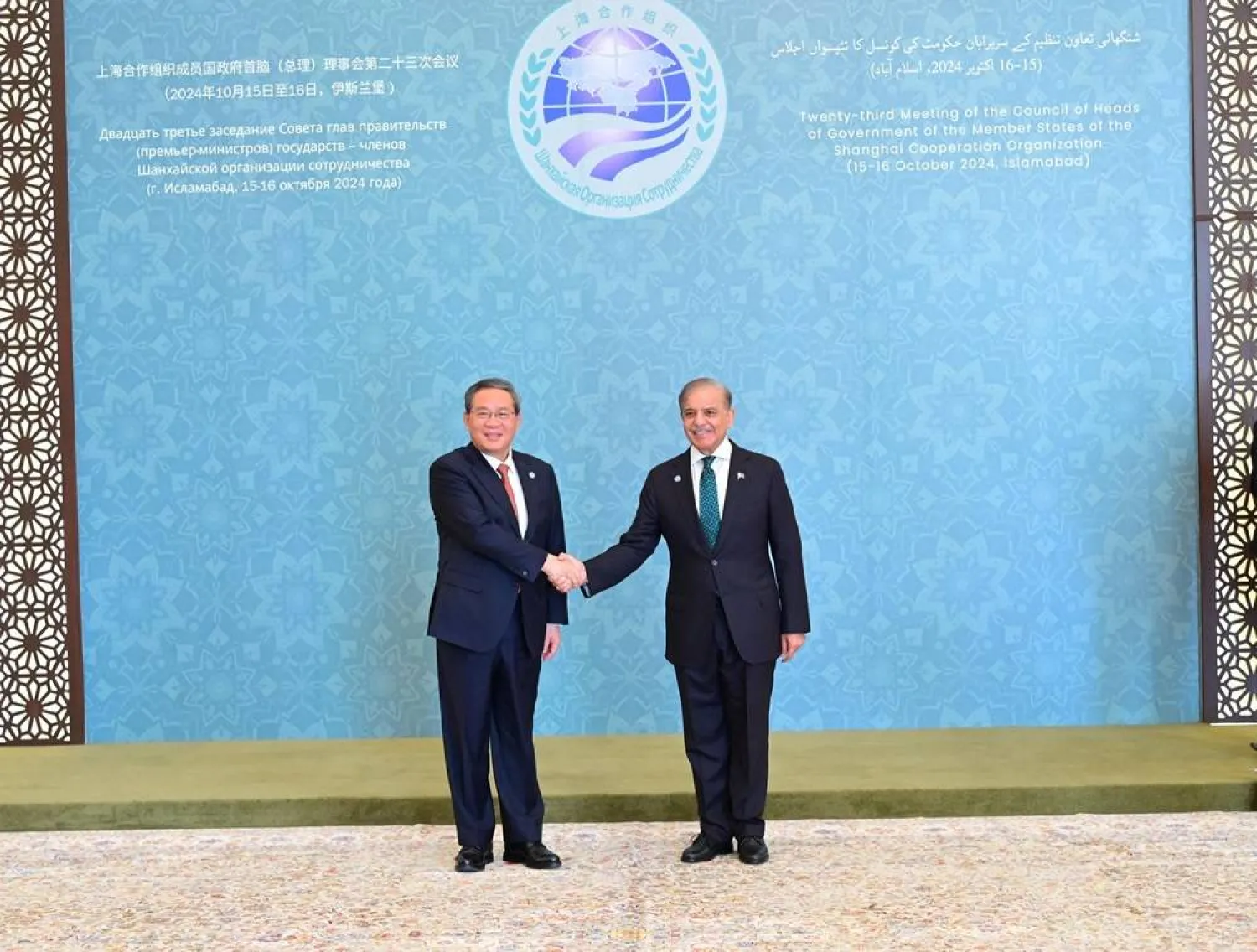Pakistan's Prime Minister Shehbaz Sharif called on Wednesday for the expansion of China's Belt and Road Initiative (BRI) to enhance regional cooperation.
He was addressing a heads of government meeting of the Shanghai Cooperation Organization (SCO), a Eurasian security and political group formed in 2001, being held in Islamabad and attended by officials from 11 countries, including host Pakistan, China, Russia and India.
"Flagship projects like the Belt and Road Initiative of President Xi Jinping...should be expanded focusing on developing road, rail and digital infrastructure that enhances integration and cooperation across our region," Sharif said in his speech as the chair of the meeting.
The BRI is a $1 trillion plan for global infrastructure and energy networks that China launched a decade ago to connect Asia with Africa and Europe through land and maritime routes. Beijing's rivals see the BRI as a tool for China to spread its geopolitical and economic influence.
Western countries, under the G7 platform, last year announced a $600 billion plans to launch a rival connectivity infrastructure development plan. BRI has also been criticized for increasing unsustainable debt in developing countries.
The China-Pakistan Economic Corridor (CPEC) is a part of the BRI and has seen Beijing pump in billions of dollars into the South Asian country for road networks, a strategic port and an airport.
Sharif said CPEC would also help enhance cooperation, adding that 40 percent of the world's population lived in SCO's 10 full member states.
The SCO meeting is the highest-profile event hosted by the troubled South Asian nation in years. Seven prime ministers are attending, including Chinese Premier Li Qiang.
Sharif also said stability in neighboring Afghanistan, which lies between South and Central Asia, was essential to fully realizing trade opportunities for the SCO member states.
Also in attendance is India' External Affairs Minister Subrahmanyam Jaishankar, who is the first Indian foreign minister to visit Pakistan in nearly a decade with ties between the nuclear-armed rival neighbors continuing to be frosty.









